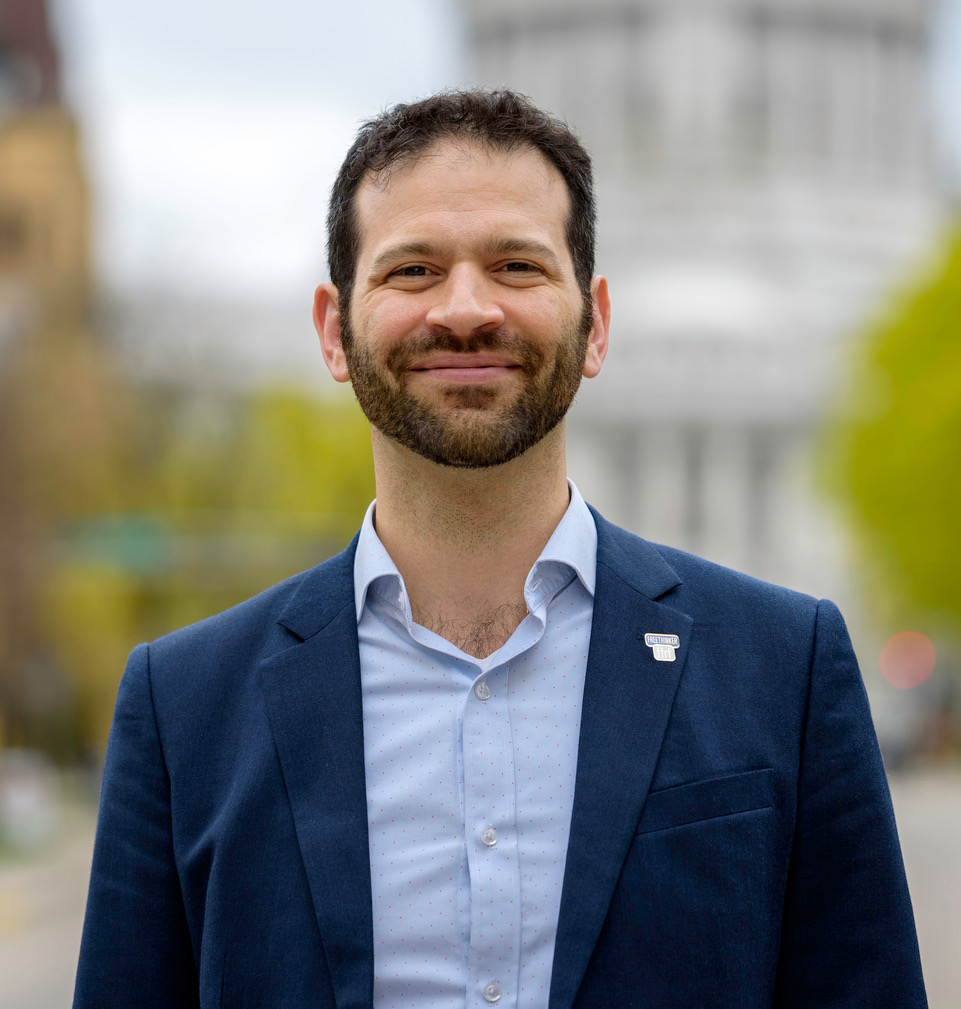 All Americans must have access to secular recovery programs. My friend Ray deserved one.
All Americans must have access to secular recovery programs. My friend Ray deserved one.
Have you ever had a friend who was so smart that taking a standardized test was as simple for them as crossing the street? That was Ray: brilliant, great fun, humble — and a good friend. Ray, like so many Americans, also struggled with substance abuse. He was in recovery. He went to meetings. It seemed to be working. And then, one day, he boarded a plane to San Francisco and never came home. He overdosed there.
His death blew a hole in me. And as solitary as that grief was and still is, I know Ray’s story is not unique. The phenomenon of substance abuse is affecting nearly everyone. Last year, 77,000 Americans succumbed to this scourge. Our nation lost more people to substance abuse in one year than in the entire Vietnam War.
The Freedom From Religion Foundation is working to ensure that all Americans have access to a secular mutual-support, self-motivating, science and evidence-based recovery option. This is one of our key legislative pushes because it can literally save lives.
Twelve-step and other faith-based recovery meetings are widely accessible across our nation. Yet evidence-based, secular alternatives, such as SMART Recovery, LifeRing, Women for Sobriety, Secular Organizations for Sobriety, lack public awareness and adequate institutional support.
This common-sense policy is also constitutionally required. Twelve-step programs, including Alcoholics Anonymous and Narcotics Anonymous, are “pervasively religious,” according to federal courts. If the federal government requires a person to participate in a recovery program (such as a drug court or through a probation department), there must be a secular program offered to the person for the order to be constitutional.
But in many areas of the country, those seeking substance abuse treatment lack access to this secular alternative. If the court then orders substance abuse treatment, the lack of a secular option violates the individual’s First Amendment rights.
According to the Substance Abuse and Mental Health Services Administration (SAMHSA) and the surgeon general, medication-assisted treatment, combined with psychosocial therapies and community-based recovery supports, is the gold standard for treating opioid addiction. SAMHSA further explains “that there is strong scientific evidence that this combination of therapeutic interventions is life-saving and can enable people to recover to healthy lives.”
We support secular recovery programs that embrace these principles and allow an individual to choose a recovery program that honors their ideas and values.
FFRF is working on legislative vehicles to get more Americans access to secular recovery options.
FFRF is working closely with secular recovery providers, such as LifeRing and SMART Recovery, plus secular organizations such as the Secular Coalition for America and its member groups, to advance these legislative goals.
We are helping fund secular recovery options by pushing two appropriations requests designed to increase access to nonreligious recovery programs both in-person and online. These requests will help the millions of Americans who are suffering from addiction and help address the addiction crisis in a more effective manner.
The first request would allow an estimated $14 million to help nonprofit organizations (using evidence-based programming in mutual support recovery programs) to extend their programming to reach across the country in urban, rural and underserved communities.
The second request would direct SAMHSA to prioritize and make funding available for secular recovery programs.
Together, the requests will allow organizations to increase the number of meetings, supporting them with materials and resources, training community members to facilitate meetings. It will build the technological infrastructure to hold online meetings for people in geographically isolated areas, or for those who do not have access to transportation, have had their licenses suspended or have scheduling conflicts.
Currently, we are working with our allies in Congress to insert our ideas into the FY 2020 Labor-Health and Human Services Appropriations bills. We hope that soon, organizations can launch additional meetings (in-person and online) to bring secular and evidence-based recovery support to millions of people, including those who have addictions and those caring for loved ones with addiction.
FFRF is steering a lot of other initiatives on this front, too. We are evaluating the implementation of the Support Act, which was the first major federal bill designed to curb the opioid crisis; examining current pieces of legislation such as the Comprehensive Addiction Resources Emergency (CARE) Act; and looking for opportunities to fulfill our goals in must-pass pieces of legislation.
I don’t know what could have saved Ray, but I wish he had some additional treatment options. If we can fulfill this legislative goal, so many more Americans will have other options to get the help they need.
Stay tuned for more about what FFRF is doing for you in D.C., and I hope you enjoyed the Fourth of July,
All the best,
![]()
Mark Dann
Director of Governmental Affairs
Freedom From Religion Foundation
P.S. If you or someone you know needs help, please check out these secular recovery options: LifeRing, SMART Recovery, Women for Sobriety, Secular Organizations for Sobriety.

